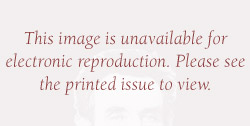Introduction
Skip other details (including permanent urls, DOI, citation information): Copyright © Board of Trustees of the University of Illinois. For permission to reuse journal material, please contact the University of Illinois Press (UIP-RIGHTS@uillinois.edu). Permission to reproduce and distribute journal material for academic courses and/or coursepacks may be obtained from the Copyright Clearance Center (www.copyright.com).
For more information, read Michigan Publishing's access and usage policy.
The first issue of the Papers of the Abraham Lincoln Association is the product of many hands.
President Barringer has for many years encouraged the Association to expand its scholarly activities, particularly in the field of publications. Since the reactivation of the Abraham Lincoln Association in the 1960s for the purpose of assisting in the reconstruction of the Old State Capitol, that first goal has been successful and the Old State Capitol is now operated by the Illinois State Historical Library. And with the revitalization of the Lincoln Home Area by the National Park Service, all the principal land-marks associated with Abraham Lincoln are assured of permanent preservation.
In order to give a clearer definition to the purpose of conducting and encouraging scholarly activities, the Board of Directors asked Clyde Walton in 1977 to head a long-range planning committee that would identify and develop the rationale for additional projects that would make a lasting contribution to the Lincoln field. A regular publications program was the first item on that committee's agenda, and the Papers of the Abraham Lincoln Association is the result.
Other projects now being studied by the Association include the publication of a book of verified accounts of Lincoln by his contemporaries. Anyone who has waded through the literature of people who knew, or claimed they knew, Lincoln and eventually "got right" with him after his martyrdom knows how valuable such a guide would be in distinguishing the real from the spurious or near-spurious accounts of Lincoln's life and thought. The committee is also addressing the problem of how to update Jay Page [End Page 6] Monaghan's Lincoln Bibliography, 1839–1939, with annotations to the hundreds of publications that have appeared since the Lincoln Bibliography was published as Volumes 31 and 32 of the Collections of the Illinois State Historical Library. Another plan being considered is the publication of the "Lincoln legals," that last large body of unpublished Lincoln writings that were not included by Roy Basler in his monumental Collected Works of Abraham Lincoln, sponsored by the Abraham Lincoln Association. Since 1952, when the Collected Works was published, the Illinois State Historical Library has acquired the originals or copies of hundreds of legal documents that Lincoln produced while a lawyer in Illinois.
These projects are all "long-range." Their solutions are subject to many different approaches. But all must wait for the right time and the right person (and the proper funding) for their completion.
It was that way with this first volume of the Papers of the Abraham Lincoln Association. The right person, Mark E. Neely, Jr., was waiting and generously offered to do our lead article. Born in Amarillo, Texas, in 1944, Mark earned the Ph.D. at Yale University and has directed the Louis A. Warren Lincoln Library and Museum since 1972. Mark's articles have appeared in numerous historical journals. His meticulous editing of Lincoln Lore has earned him a premier place among modern writers about Lincoln and his times. Mark is currently at work on a Lincoln encyclopedia, which is scheduled for publication by McGraw-Hill in 1980.
Mark's article "The Lincoln Theme Since Randall's Call: The Promises and Perils of Professionalism" suggests additional work for Lincoln scholars and is therefore especially appropriate for this issue. The Abraham Lincoln Association is confident that if much of what Mark calls for is researched in coming years, there will be a renaissance in Lincoln studies. And the Association will be ready to publish these findings as they become available.
Additional sources for the articles to appear in the Papers will be the presentations given each year at the Association's Annual Symposium and Banquet. President Barringer alluded to these forums in his Foreword. The Annual Symposium, which is organized for the Association by Roger D. Bridges, head librarian and director of research at the Illinois State Historical Library, provides the opportunity for two or more distinguished scholars to present their research before an audience assembled in the re- Page [End Page 7] stored Old State Capitol chamber where Lincoln delivered his "House Divided" speech.
The author of our second article, David R. Wrone, professor of history at the University of Wisconsin at Stevens Point, first delivered "Lincoln: Democracy's Touchstone" at the Lincoln Symposium of February 12, 1979. Impressed by Lincoln's stature as the national leader to whom Americans look to provide a model for their life and work, David discovered that such inspirational post-Civil War leaders as Jane Addams, Robert LaFollette, and Eugene Debs consciously modeled their lives and encouraged others to do the same around a set of beliefs as to what Abraham Lincoln meant to them.

To edit the Papers, the Association has called upon Mary Ellen McElligott and Janice Petterchak, editors of the Illinois State Historical Library, to lend their considerable talents to this project. Although they have patterned the design of the volume after the original Papers, their hands are everywhere.
If the Papers becomes the forum for active scholarship as well as a notebook of the activities of the Abraham Lincoln Association and its members, the publication will become what the Association believes it should be.
William K. Alderfer, Secretary Page [End Page 9]

